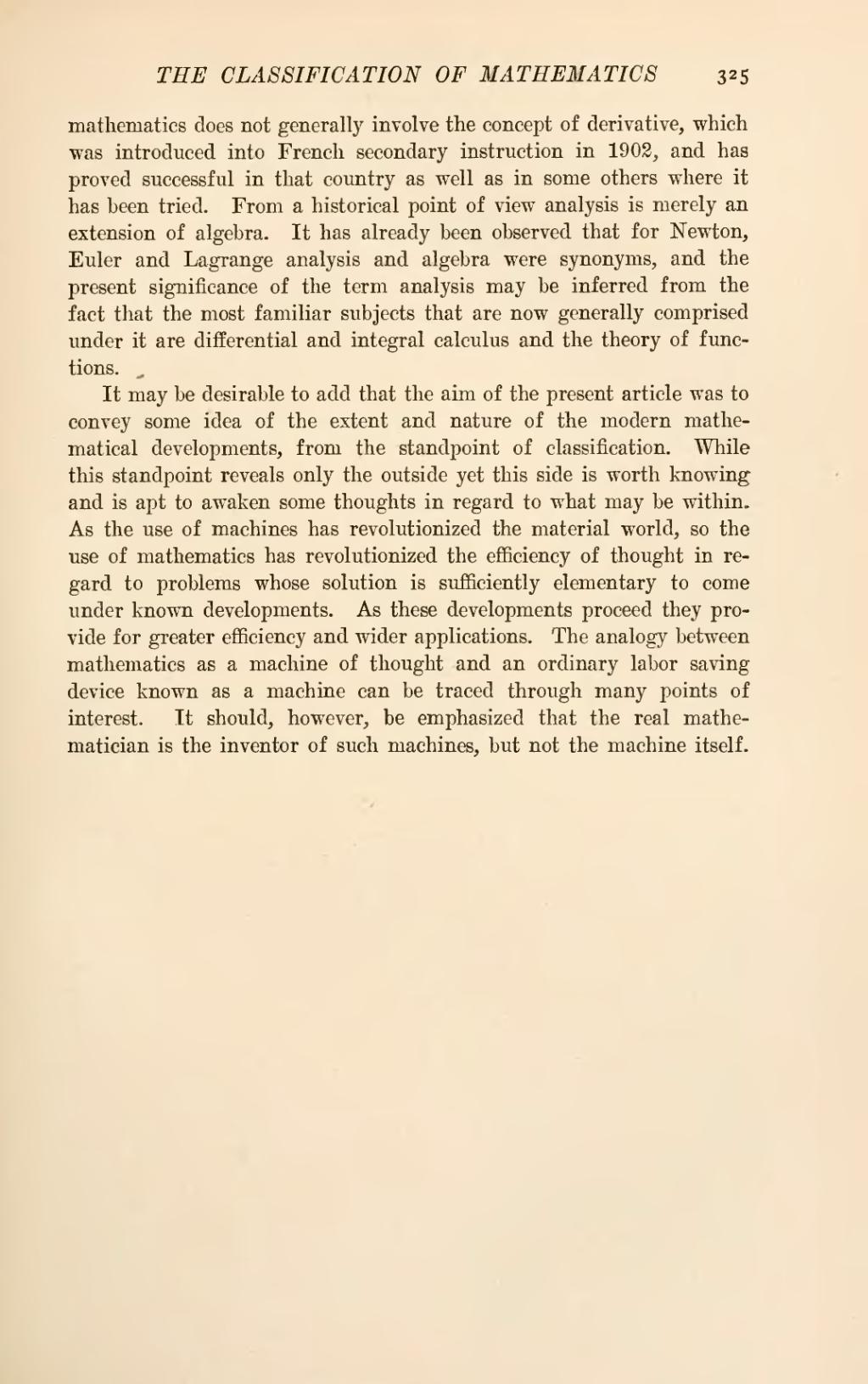mathematics does not generally involve the concept of derivative, which was introduced into French secondary instruction in 1902, and has proved successful in that country as well as in some others where it has been tried. From a historical point of view analysis is merely an extension of algebra. It has already been observed that for Newton, Euler and Lagrange analysis and algebra were synonyms, and the present significance of the term analysis may be inferred from the fact that the most familiar subjects that are now generally comprised under it are differential and integral calculus and the theory of functions.
It may be desirable to add that the aim of the present article was to convey some idea of the extent and nature of the modern mathematical developments, from the standpoint of classification. While this standpoint reveals only the outside yet this side is worth knowing and is apt to awaken some thoughts in regard to what may be within. As the use of machines has revolutionized the material world, so the use of mathematics has revolutionized the efficiency of thought in regard to problems whose solution is sufficiently elementary to come under known developments. As these developments proceed they provide for greater efficiency and wider applications. The analogy between mathematics as a machine of thought and an ordinary labor saving device known as a machine can be traced through many points of interest. It should, however, be emphasized that the real mathematician is the inventor of such machines, but not the machine itself.
